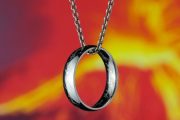That following day was spent in rapt contemplation of the panorama of the spreading city beneath their feet as the splendour of its glittering skyscrapers built on oil wealth was slowly muffled and then engulfed by the forested mountainside they climbed as their empty cable car ascended the Pico de Avila. From above, you could not see the shacks, or the beggars at every intersection, or the queues waiting for shipments of food from the international aid agencies whose depots the government denied existed. The view was spectacular. “Just like Vancouver!” breathed Mattie in heartfelt homage to her birthplace, “but without the sea.” At the summit was the mothballed Hotel Humboldt, a high-rise white elephant visible from the valley below, built at great expense decades before, but never patronized by the wealthy crowds its investors had vainly hoped for. Its failure pointed the way to the financial collapse the country was to undergo during the tumultuous years of the ill-fated “Bolivarian revolution” of cronyism and expropriation that the socialist Hugo Chavez was to inflict upon his suffering countrymen, a situation worsened by falling oil prices. Even here and even then there was an ominous hint of decay and dissolution: above their heads as they walked, Paul and Mattie saw a line of empty rusting and derelict smaller bubble cable cars, designed to take guests disinclined to walk the short distance from the terminal to the hotel. The immobilized bubbles swayed brokenly in the passing breeze. The teleferico down the other side of the mountain, designed to take tourists to the Caribbean beaches four thousand feet and more below the clouds, was similarly out of commission, and had apparently been so for years. Things fall apart, thought Paul; the centre cannot hold. No, it wasn’t just like Vancouver. A knot of men with hard eyes loitering in the parking lot surveyed them with suspicion, but the car had not been broken into. Not this time. This was never Vancouver. There were crucial differences.
That night, hearing voices in the kitchen, Paul stepped out onto the verandah, which faced the driveway, after turning on the outside light. As he did so, he paused. What if Esmeralda were trying to avoid contact with him? Was she ashamed of her situation? Did she not have a right to privacy? Was it mere childhood guilt that had made him seek this meeting the other night? If so, this was mere selfishness. If not, it was simple sensation-seeking. Would she not be justified in keeping away from what she might see as meddling intrusiveness by a figure from her remote past? Yet she was tied to that past by her genes, by her own dependence on her family’s privileged position and by her mother’s offer to be his hostess. Mrs. Beck was not ashamed of her. He opened the door again. There was now silence in the kitchen, and no light from under the door. This was silly. What was all this creeping about in aid of? He and Mattie weren’t ogres. He did not have the plague. This was not Puritan Massachusetts, and she was not a scarlet woman. She and her daughter would have to pass in front of him this time, and his curiosity, for better or worse, would be assuaged.




